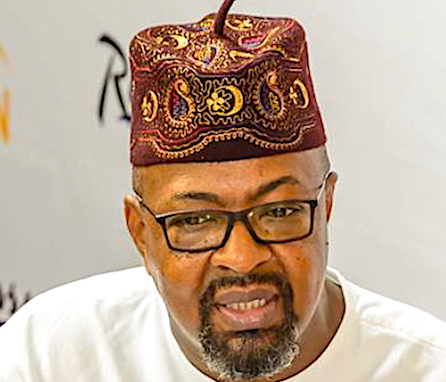Advancing the Conversation
Following major upheavals in the human experience, there is certainly the need to rethink tourism, and create the basis for making it a lot more sustainable. This is a prime aspect of economic activity, involving many inter-related industries, which great numbers of livelihoods depend on, alongside the wellbeing of communities and nations.
The need for a recalibration in approach is what informed the convocation of a global conversation on “Linking Tourism, Culture and Creative Industries: Pathways to Recovery and Inclusive Development”, which would hold in Lagos from November 14 to 16, 2022 at the National Theatre in Iganmu. This will witness the participation of a wide range of tourism actors and stakeholders from across the world.
The nexus between culture, the creative industries and tourism has been one which we have engaged with very boldly at the Nigeria Tourism Development Corporation (NTDC), which I have been privileged to lead in over half a decade, and it has inspired both our mediations on this close interconnections and the conception of a number of programmes. These include Tour Nigeria and Nigerian Flavours, among others, which were designed to bolster domestic and inbound tourism in the country.
As such, it is quite inspiring to be part of a broader and international conversation on how to advance the frontiers of this practice, under the leadership of the Federal Ministry of Information and Culture, and at this crucial period in the history of our country, and the world at large.
It goes without much saying that the world has been hugely impacted and disrupted by the advent of natural phenomena, including COVID-19 and climate change, with the former having occasioned highly palpable effects on the global economy which, until the recent reversals, had seen to the lose of as much as 80% of the value in many sectors. This occurred across a chain of industries, such as those involved in creativity and hospitality, among others.
Likewise, human activity over the past decades has elicited consequences that have not only seen to the growth of wealth and nations but also a massive carbon footprint that has altered the climate in ways that require urgent actions to prevent the unraveling of the natural environment, and the world we live in.
Yet, with the healing that comes on the heels of the human capacity for resilience, there is the need to embrace a more sustainable approach to recovery – as indicated earlier, by developing newer strategies to recoup on lost grounds and create new value that drives sturdier economic growth. This is necessary in order to safeguard livelihoods, jobs, to expand the income pool and put countries back on the path of holistic recovery.
The Creative Industries and a Resurgent Global Economy
A vital part of the responses for recovery has been the identification of the vast potentials in the connection between the tourism and the Creative and Culture Industries (CCI), and the huge promise they hold for generating and sustaining economic activity. It was this recognition that made the 74th General Assembly of the United Nations to declare 2021 as the International Year of the Creative Economy for Sustainable Development.
In describing the reinforcing capabilities of the Creative and Culture Industries, for global economic recovery, within the frame of tourism, the United Nations World Tourism Organisation (UNWTO) stated that the “creative economy and creative industries could be part of the solution. They offer an immense potential for growth, innovation and product diversification within the tourism ecosystem.”
The case for a greater leveraging of the creative and culture industries as a crucial flank of economic recovery is hinged on the compound value of $2.3 trillion that it generated, which constitutes about 3% of the world’s GDP. And, the value of creative goods in the global markets rose to $509 billion in 2015, from $208 billion in 2002, highlighting the potentials of the creative sector as an engine room of economic growth. This is buttressed by the fact that no less than 40% of international tourist visits are driven by the need for “culture-related experiences”, of which the creative sector is a crucial aspect.
As such, the culture and creative industries are prospective catalysts of significant recovery and a resurgent global economy. This is as evident in the more recent strengthening of demand for products of the sector, as in the expanding array of newer and more appealing offerings coming out of the sector. Hence, there is the necessity of rethinking the policy outlay and designing novel approaches to enhancing the capabilities of the sector.
Nigeria has one of the largest and most popular creative industries in the world – with an explosion of creative forms from movies to music, the performance and visual arts, etc. – and is certainly the most appropriate location for the contemplation of newer pathways or approaches a recovery that links tourism to culture and the creative industries.
The numbers also bear witness to this, with the country’s movie industry, Nollywood, which is now one of the most sophisticated globally, being valued at close to $7 billion in 2021, and producing over 2,500 titles annually. The Nigerian music industry has been described as the second best-performing Entertainment and Media Consumer market worldwide. This is hinged on the innovation of its many genres, seeing to the massive boom of a category like Afrobeats. And equally attesting to the extensive degree of its appeal, digital platforms have revealed that Nigerian music has crossed the billion streaming figure, motivating major international recording labels and publishing companies to seek entry into the market to partake in this colossal creative and business flourishing.
The crosscutting allure of Nigerian music is as evident today, as it was when I shaped a cultural narrative out of it in the earlier part of my public career, on the subnational level, when I created and directed the One Lagos Fiesta. This remains, possibly, the largest festival of music and arts hosted across multiple locations in Africa’s foremost megacity.
From Culinary to Sartorial Flavours: Nigeria’s Enduring Creative Assets
Beyond music and entertainment, Nigeria has some of the greatest cultural creative assets, one of which is gastronomic, which in itself is a prime driver of tourism, both domestic and inbound. Food is a major motive for destination travel and a crucial part of the tourist experience, hence the notion





